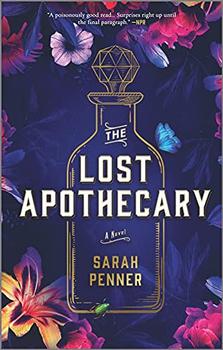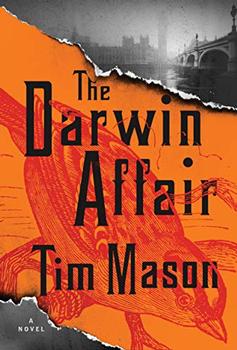Summary | Excerpt | Reviews | Beyond the book | Read-Alikes | Genres & Themes | Author Bio

The Mermaid and Mrs. Hancock, the debut novel from brilliant new literary talent Imogen Hermes Gowar, explores the ways in which those disadvantaged by race, gender and class in 18th century London attempted to build better lives for themselves. The novel opens with English merchant Jonah Hancock receiving word that one of his prize ships has been sold by its captain in exchange for the skeleton of a "mermaid." In an attempt to gain back the profits lost on his ship, Hancock sets about displaying this creature to London society. While doing so, he comes across Angelica Neal, an enthralling courtesan (see Beyond the Book) whose benefactor has recently died. She is attempting to keep herself afloat in a society that makes it nearly impossible for women to support themselves financially and, at the "advanced" age of 28, is reluctantly seeking a husband.
From the very first page, the novel oozes style and finesse. Gowar's keen perception is evident through her attentive descriptions, particularly in how she demonstrates a character's attitude. The introduction of a minor character named Mrs. Frost is particularly evocative:
Mrs. Frost is tall and narrow, the skin of her face unpainted and very smooth and taut, like kidskin. It is difficult to age her, for her person is like her dress, neat and plain, sponged lightly clean each night, kept carefully from the world.
In only two sentences Gowar conveys Mrs. Frost's closed-off and cautious nature without ever explicitly stating it to the reader. This intricate prose reads like a classic Victorian novel in the style of Charles Dickens or George Eliot; occasionally it demands that you read a sentence twice in order to fully understand every nuance of meaning, but doing so is a pleasure, not a chore.
Similarly, the setting explodes off the page with vibrant color; it is evident that Gowar meticulously researched each aspect of the society she integrates into her novel. Though the title contains the word "mermaid," the story is firmly grounded in the realities of London life in the late 18th century. This is a world that has little whimsy to spare; each character is merely trying to survive as best he or she can. The small, authentic details Gowar includes, like Angelica using pages from the homilies passed out to the prostitutes by missionaries to curl her hair, only serve to make the characters (and their struggles) more real.
Though the narrative is divided nearly equally between Mr. Hancock and Angelica, the novel's focus is how women struggled to live under class and gender constraints in London. It is populated by a cast of strong-minded, independent women, including Mrs. Chapelle, brothel madam and Angelica's former employer; Bel Fortescue, ex-prostitute turned feminist; and Sukie, Mr. Hancock's young niece who dreams of marrying an old man and waiting out his death so that she might retain her agency as a widow and find employment. Each character has clearly defined beliefs about the roles of women, some of which directly conflict with another's views. For example, Angelica and Bel's friendship is tested by the latter's desire to marry her long-time benefactor. Angelica believes doing so would force Bel to give up her freedom, while Bel argues it could actually have the opposite effect. Gowar never sermonizes, rather she presents both sides of the argument and allows readers to come to their own conclusions.
The Mermaid and Mrs. Hancock is a delicious jaunt through Georgian-era London and its politics, and a beautiful exploration of the strength harnessed by many women to live beyond the limitations of their class and gender roles.
![]() This review was originally published in The BookBrowse Review in September 2018, and has been updated for the
October 2019 edition.
Click here to go to this issue.
This review was originally published in The BookBrowse Review in September 2018, and has been updated for the
October 2019 edition.
Click here to go to this issue.

If you liked The Mermaid and Mrs. Hancock, try these:

by Sarah Penner
Published 2022
A forgotten history. A secret network of women. A legacy of poison and revenge. Welcome to The Lost Apothecary.

by Tim Mason
Published 2020
Get ready for one of the most inventive and entertaining novels of 2019—an edge-of-your-seat Victorian-era thriller, where the controversial publication of On the Origin of Species sets off a string of unspeakable crimes.
Your guide toexceptional books
BookBrowse seeks out and recommends the best in contemporary fiction and nonfiction—books that not only engage and entertain but also deepen our understanding of ourselves and the world around us.